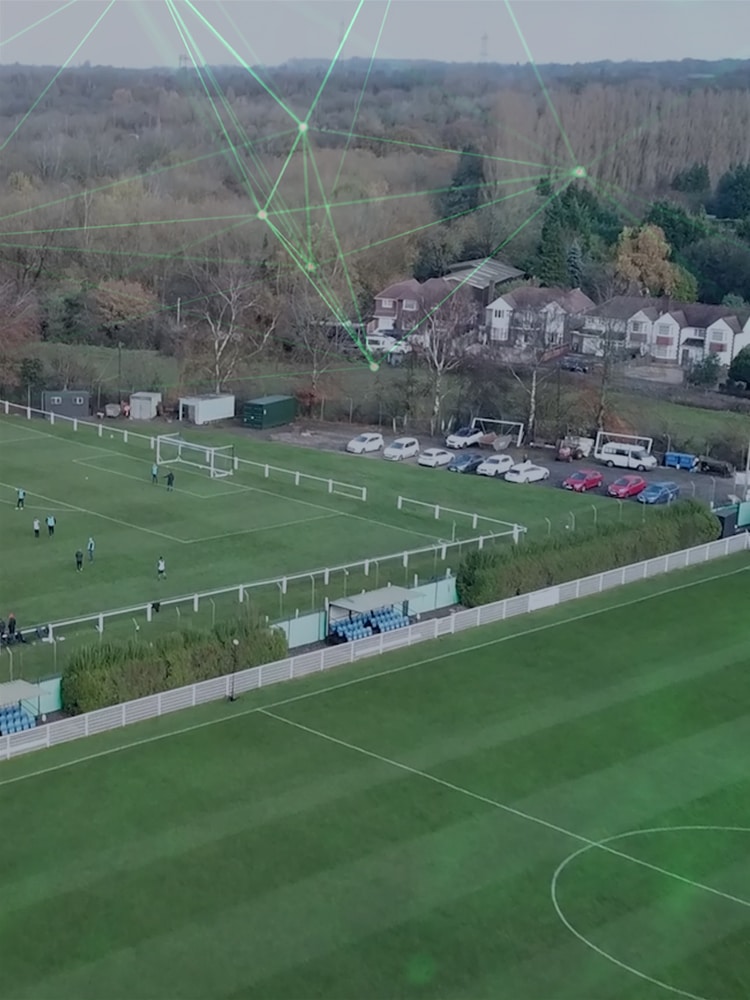

Empowering Smart Sports Cities: Revolutionizing Community Engagement and Support
Cities that host major tournaments or renowned sporting events, like Olympic cities or those with World Cup matches, understand the importance of connecting the community through sports. Investment in sports plays a vital role in fostering community engagement, promoting local talent, and strengthening the bond between residents and their city. Advanced technologies in smart cities revolutionize urban life, including sports, by providing seamless services, boosting community engagement, and transforming the sports experience. By prioritizing sports and leveraging advanced technologies, smart cities provide valuable services to residents, support local sports teams, and enhance overall community well-being. By integrating data analytics and IoT devices, these cities create immersive sports experiences while actively supporting local teams.
Developing a Smart Sports City – Connecting the Community through Sports
Sports have the power to bring people together and foster a sense of unity. Smart sports cities use technology to maximize this potential and leverage sporting events as a platform to connect residents. By providing comprehensive sports coverage, live streaming, and on-demand content, these cities ensure that their residents can stay connected with their favorite local teams and athletes. This accessibility enhances community engagement, allowing residents to share in the excitement and achievements of their sports heroes. A study by the University of Iceland found that Iceland’s capital Reykjavik’s investment in sports facilities has helped to reduce crime rates and improve social cohesion.
![]()
So how do different technologies contribute to sports?
Internet of Things (IoT) for Enhanced Fan Experiences
Internet of Things (IoT) is playing a crucial role in transforming sports experiences for fans. Smart stadiums equipped with IoT devices can provide real-time updates, interactive displays, and personalized experiences. IoT sensors embedded in seating, for example, can gather data on occupancy rates, enabling fans to easily find available seats. Additionally, IoT-enabled wearable devices can enhance fan engagement by providing personalized information and insights during matches, creating a more interactive and immersive experience for spectators.
Data Analytics and Performance Optimization
Data analytics provides actionable insights and performance optimization. In smart sports cities, data analytics platforms collect and analyze vast amounts of sports-related data, ranging from player performance statistics to fan preferences. This wealth of information helps coaches, trainers, and athletes make data-driven decisions, improve training techniques, and optimize performance. By leveraging data analytics, smart cities can enhance the overall sporting experience, improve fan attendance and develop commercial opportunities while fostering a culture of a healthy lifestyle.
Artificial Intelligence (AI) and Automated Video
Artificial Intelligence (AI) is transforming the way sports are produced and distributed. AI-powered cameras and automated video production systems, like those offered by Pixellot, streamline the process of capturing, analyzing, and distributing sports content. These AI systems can autonomously track players, analyze gameplay, and produce high-quality videos, eliminating the need for traditional camera crews. The integration of AI in sports production enables comprehensive coverage of many local sporting events, ensuring that fans and residents have access to a wide range of sports content.
Virtual and Augmented Reality (VR/AR) Experiences
Virtual and augmented reality technologies are creating immersive experiences for sports fans. In smart sports cities, VR and AR can provide virtual viewing experiences, allowing fans to watch matches from different angles or virtually be present at the stadium. AR overlays can enhance the in-stadium experience by providing real-time statistics, player profiles, local ads, and other interactive content. These technologies bring fans closer to the action, fostering a deeper connection with the sports teams and enhancing the overall fan experience.
Smart Sports Apps and Platforms
Smart cities are leveraging dedicated sports apps and platforms to engage residents and provide comprehensive sports services. These applications offer features such as live streaming, on-demand content, ticket purchases, fan forums, and interactive engagement. Through these platforms, residents can easily access sports content, stay updated on local events, connect with fellow fans, and actively participate in community activities. These apps serve as a central hub for residents, enhancing community engagement and fostering a sense of belonging.
![]()
Pixellot’s Role in Smart Sports Cities Globally
Pixellot’s recent collaboration with Chartres Métropole Innovations Numériques (CM’IN) in France is an example of what is possible when a global leader in AI-automated sports video and analytics solutions integrates its technology with a forward-thinking organization. Pixellot’s technology enhances sports coverage by providing a comprehensive video and data solution. Through this collaboration, Pixellot and CM’IN are pioneering the concept of smart sports cities in France revolutionizing the accessibility and visibility of local sports.
In the US, the City of Lake Forest, Illinois, is rapidly transforming its sports landscape through a recent partnership with Pixellot. This collaboration has resulted in the connection of 8 venues, along with a tailored Lake Forest broadcasting app, bolstering their advanced sports infrastructure. Already equipped with DoublePlay, Pixellot’s end-to-end multi-camera baseball solution, Lake Forest is offering the community advanced sports infrastructure to connect families and foster a dynamic sport culture
And at the other end of the world, Chengdu, the capital of China’s southwestern Sichuan province, is making significant strides towards becoming a smart sports city. The city has invested in cutting-edge infrastructure, incorporating IoT sensors and interactive displays in sporting venues. A recent collaboration with Pixellot brings AI-powered cameras and automated video production systems to local sporting clubs, enhancing coverage and accessibility for residents and sports enthusiasts. Chengdu’s commitment to innovation is set to revolutionize the sports experience for all.
![]()
Nurturing Local Talent and Encouraging Participation
Sports experts understand the importance of nurturing local talent and encouraging participation at all levels. By providing accessible sports programs and initiatives, cities create opportunities for individuals of all ages and backgrounds to engage in sports. This inclusive approach helps to discover and develop emerging talents and inspire the next generation of athletes. Furthermore, increased visibility and support for local sports teams attract scouts and talent evaluators, providing a pathway for talented athletes to be recognized and potentially pursue professional careers.
Portland has a strong commitment to promoting physical activity, and the city has invested in several sports facilities, including parks, recreation centers, and sports fields. As a result, Portland has one of the highest rates of physical activity in the United States and a study by the University of Oregon found that Portland residents are more likely to be satisfied with their lives and to have lower rates of obesity and depression.
Boosting the City’s Image and Economic Growth
Hosting major sporting events, such as the Olympics or international tournaments, puts cities in the global spotlight and boosts their image on the world stage. These events attract tourists, stimulate local businesses, and contribute to economic growth – they also introduce new technologies that are launched during the event but can be used once the final whistle is blown. The influx of visitors and media coverage generates revenue for local industries, hotels, restaurants, and transportation services, leaving a lasting impact on the city’s economy. Additionally, a strong sports culture enhances the city’s reputation as a vibrant and attractive destination, attracting investment and further contributing to economic development. An example of this is Atlanta: After hosting the 1996 Summer Olympics, Atlanta’s tourism revenue increased by 25% and the city’s GDP increased by 10%.
![]()
The convergence of advanced technologies and smart cities is revolutionizing the sports landscape, transforming community engagement, and supporting local sports teams. Through IoT devices enhancing fan experiences and AI-powered video production systems automating sports coverage, these cutting-edge technologies reshape how sports are experienced and shared. Embracing data analytics, AI, VR/AR, and dedicated sports apps, smart cities create immersive, inclusive, and connected sports environments, fostering talent development, community pride, and a vibrant sports culture benefiting residents, athletes, and the city.
As municipalities prioritize sports to connect communities and support local teams, they embrace technology for increased engagement. This sports-powered digital transformation in cities stimulates economic growth, elevates the city’s image through major sporting events, and becomes a reality through innovative partnerships like Pixellot and CM’IN, ensuring an inclusive sports culture that benefits the entire community. In this era of smart cities, sports are no longer just a pastime but a catalyst for technological innovation and community building.



